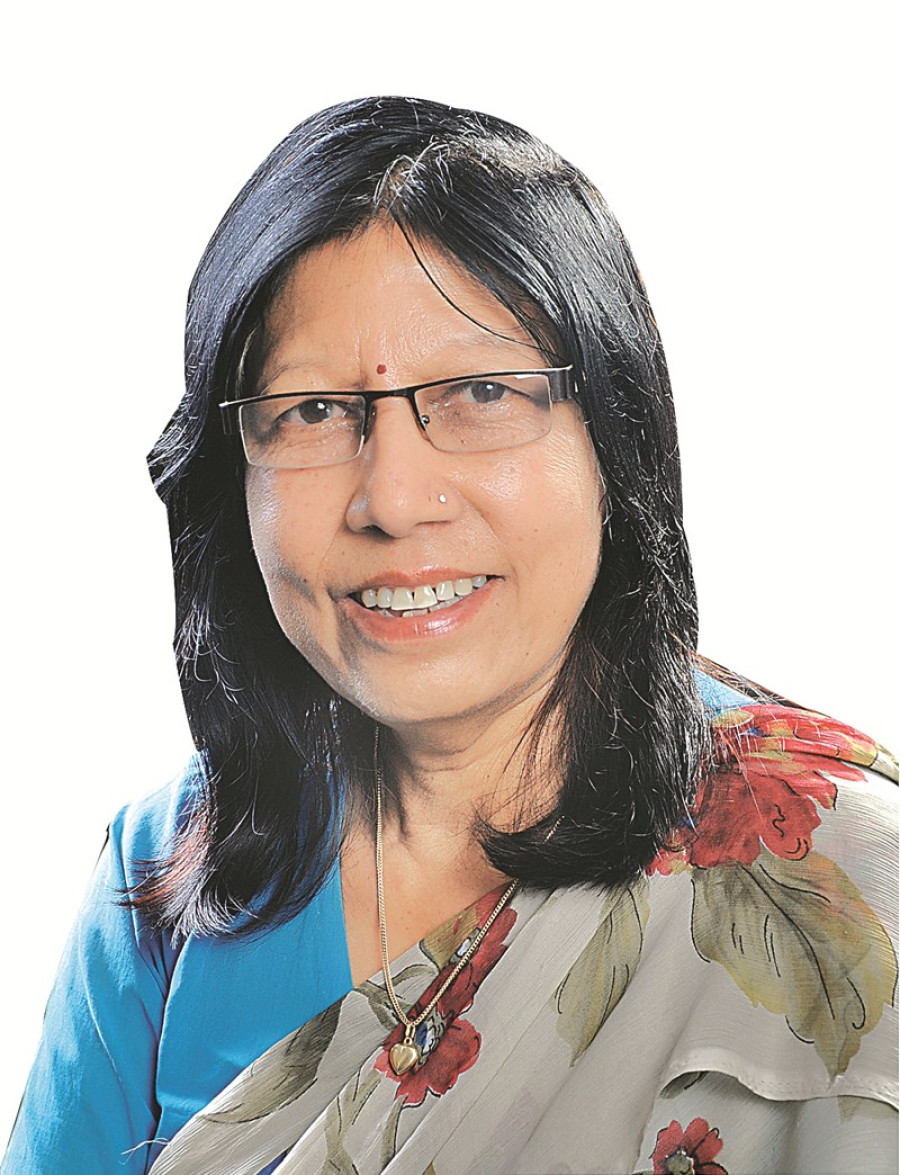Entertainment
The fine balance
Madhavi Singh Shah is a professor and former Head of Central Department of Economics at Tribhuvan University. A member of Nepal Economic Association, Shah, in lieu of the launch of her two books, Simple Route to Economic Access and The Flaming Memories, shares an insight into her new books and talks about literature. Excerpts:
Madhavi Singh Shah is a professor and former Head of Central Department of Economics at Tribhuvan University. A member of Nepal Economic Association, Shah, in lieu of the launch of her two books, Simple Route to Economic Access and The Flaming Memories, shares an insight into her new books and talks about literature. Excerpts:
Can you tell us something about your new books? What is the central thesis of both of the books?
My book Simple Route to Economic Access highlights the fact that though economy is based on market mechanism, its efficacy is judged on augmentation of people’s happiness comfort and security.
The Flaming Memories is a reaping of harvest; of the years I invested years in the social development sector despite of my academic profession. The theme is based on parental psychology suffered from the pang of separation from kids.
What made you pursue two books, from such different genres, at the same time? Did you write them simultaneously? How did you juggle them?
The two books I have simultaneously written reflect the years I spent, in different time frames of my life, as an academic and as a social development worker. Of course, it was quite tough to work at both of them at the same time, but now, after seeing the end result, I am immensely satisfied. I feel my passion and profession have both been rewarded.
Any writer whose work influences yours? Or admire?
There is no particular writer that comes to mind. But I was deeply inspired by the works of Amrita Pritam at a young age. Her novels are full of human sentiment and love; and they stayed with me long after I completed reading her work.
How different is writing fiction and nonfiction?
Both fiction and nonfiction require an immense amount of dedication, research and knowledge of content. For non-fiction, facts, figures and information are the core, whereas fiction, on the other hand, requires inspiration and an imagination.
What was the last book you read and how did you like it?
I recently read the book Responsibility and Cultures of the World, edited by Edith Sizoo and published by Leopold Meyer Foundation Paris. It has very beautifully illustrated the roles of the government, businesses and citizens—the major players on the world scene.
Do you have a favourite genre?
I am more inclined towards reading academic books, spiritual books and self-realisation books. I also read stories based on sentiments and psychology time and again.
Name a book that you would recommend, and why?
I recommend young readers and writers to read classic texts like Mahabharat and Ramayan and many more, so that they can understand the root of our culture and how the society developed. The answer to meet moral dilemma can be found in these ancient texts.
What is good writing for you? What would you say makes a good writer?
To me good writing is when you can communicate your thoughts and feelings in the simplest and best way to the reader. A good fiction writer will also leave enough for the reader’s imagination in the story.
How have books affected your life? Any book that has inspired you a lot and why?
Reading and writing is not only my profession and interest, it is my passion. I think books work as therapy for people, and take us to happy places. I am very much inspired by the book The Roaring Nineties written by American economist and social thinker Joseph Stiglitz. Though it is based on global, particularly American economy, it covers basic human issues.
Your advice for general readers and inspiring writers?
In this age of satellite entertainment and social media, reading a book sometimes takes a backseat. Therefore, my advice to readers would be to pursue the good habit and not to let it go. Reading is the most wholesome form of entertainment. Similarly, for writers, I would like to advise that writing seems difficult sometimes. It is intimidating at other times. However, to write you must keep going forward. Discipline and courage are two important aspects to being a writer.




 30.12°C Kathmandu
30.12°C Kathmandu









